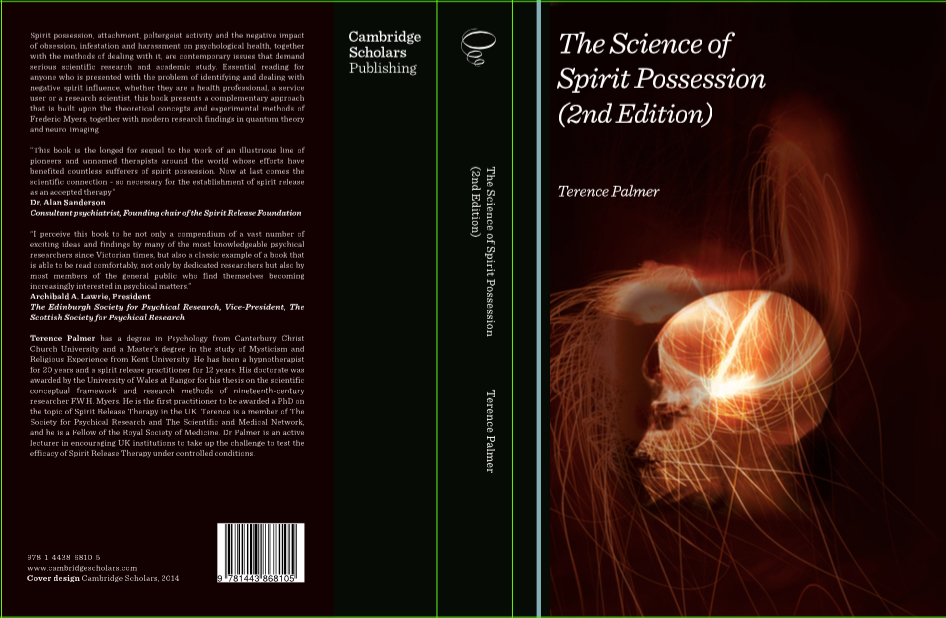I have been horrified to learn that The Science of Spirit Possession 2nd ed is being offered for sale on Amazon for ridiculous prices, sometimes in the hundreds of pounds. This is absurd as the publisher’s recommended price is £52.99, and that is the price paid through the Amazon icon on this blog. This is still a little steep for many pockets, but the book is available straight from the publisher with a 20% discount by using the code ‘spirit20’. Here is the link. Should the discount code not work please let me know and I’ll contact the publisher.
I have a small stock of copies that I carry with me to conferences, lectures and workshops, where I sell signed copies for £25. So, if you want one at this price come to an event where I am speaking and ask me for one.
I also left a small stock at the Sokukoji Buddhist Monastery in Battle Creek, Michigan where I am confident that my friends there will let you have a copy at the 20% discounted price ($ converted) if you ask them. Here is their blog address.
Whilst checking out the price on Amazon, I was pleasantly surprised to find these excellent reviews and I sincerely thank all those who took the time and trouble to read the book and write them. Thank you all.
Amazon Reviews
“This book, based on Palmer’s Ph.D. thesis, is a scholarly and authoritative exploration into a little understood area of human experience. […] The book sets out to challenge the current orthodox position on the causes of mental problems, which it does more than adequately […] [and] for those interested in, or working with mental and psychological health, where a possible cause could be spirit intrusion in one form or another, it should be a must to have on the bookshelf.”
David Furlong, Director of the Spirit Release Forum and author of Illuminating the Shadow. Network Review: Journal of the Scientific and Medical Network, 121 (2016/2).
“The Science of Spirit Possession is a commendable book and I recommend it. […] It is refreshing to see such an erudite discourse, particularly when it comes to theory. Dr. Palmer knows the subject very well and it is evident.”
Erika A. Pratte. Journal of Exceptional Experiences and Psychology, 3: 1 (2015).
“This book contains so much valuable information for anyone who wishes to delve deeper into all aspects of the possession phenomenon, how it has been and is now being treated and all that this entails in various parts of the world.”
Martha Jette. Examiner.com, 10.1.2015.
“The Science of Spirit Possession is a book for anyone who seriously wants to examine the question of whether spirits exist and whether they can negatively affect a person emotionally and psychologically. In this book, Dr. Terence Palmer moves between the clinical evidence for the existence of spirits, on the one hand, and the search for a scientific conceptual model that can accommodate such phenomena, on the other. This book is an in-depth history of that search and argues for the model of mind and spirit developed by Cambridge scholar Frederic Myers, the 19th century co-founder of the British Society for Psychical Research. In this well-researched and well-reasoned work, Dr. Palmer offers psychology and psychiatry a scientific framework for recognizing and addressing metaphysical realities. The Science of Spirit Possession offers solid footing for those who are ready to look beyond the scientific materialism that holds us back.”
Thomas Zinser, Ed.D. Author of Soul-Centered Healing.
“This book is the longed-for sequel to the work of an illustrious line of pioneers and unnamed therapists around the world whose efforts have benefited countless sufferers of spirit possession. Now at last comes the scientific connection – so necessary for the establishment of spirit release as an accepted therapy.”
Dr. Alan Sanderson. Consultant psychiatrist, Founding chair of the Spirit Release Foundation.
“I perceive this book to be not only a compendium of a vast number of exciting ideas and findings by many of the most knowledgeable psychical researchers since Victorian times, but also a classic example of a book that is able to be read comfortably, not only by dedicated researchers but also by most members of the general public who find themselves becoming increasingly interested in psychical matters.”
Archibald A. Lawrie President, The Edinburgh Society for Psychical Research, Vice President, The Scottish Society for Psychical Research.
“A serious scientific book on the subject of spirit possession, which has long been a subject of cultural curiosity for anthropologists and derision by psychiatrists.”
Dr. Erlendur Haraldsson. Professor Emeritus, School of Health Sciences, University of Iceland.
“The proposed research project protocol in this book could bring very important findings.”
Alexander Moreira-Almeida Professor of Psychiatry, School of Medicine, Federal University of Juiz de Fora, Brazil.
“Spirit possession is a widespread phenomenon and has received a good deal of attention in anthropology, with a focus on indigenous tribal societies. It is much rarer to find it treated in Western society and moreover in a rigorous analytic way. Particularly welcome is Terence Palmer’s use of materials from the early Society for Psychical Research, especially the work and theories of F. W. H Myers.”
James G. Matlock, Ph.D. Associated Scholar, Rhine Research Center.
This review from Sven Heck is previously unpublished:
With The Science of Spirit Possession Dr Terence Palmer brings into sharp focus the reality that there are mental phenomena that we as therapists have to deal with in a practical way that cannot be sufficiently explained by today’s mechanistic scientific paradigm. In exploring the scientific framework of 19th century researcher F W H Myers’ comprehensive model of mind, and linking it with modern theories of quantum physics, hypnosis, spirit release therapy (SRT) and the traditional knowledge of Shamanism, past and present, Palmer provides a conceptional framework that is grounded in robust scientific theoretical principles that can accommodate therapeutic interventions that do work with phenomena that may be labeled as ‘paranormal’ on a solid, pragmatic foundation.
Palmer elucidates the fact that just because some phenomena are sometimes labeled ‘paranormal’ it does not mean that we should reject them because of our own biased belief system and deny their impact on our patients’ subjective ‘reality’. Palmer supports and reinforces Myers’ contention that ‘everything that exists is normal’ and all that is needed is an expanded approach to what is ‘natural’ and a greater understanding that fits the beneficial outcomes of the practical work. Spirit Release Therapy is such an approach. Its powerful, and sometimes seemingly miraculous, results make it very clear that now is the time for an attitude to mental health that does not limit the exploration and use of our consciousness to models that are constrained solely within a neurological framework.
Sven Heck – Transpersonal Regression Therapist / Hypnotherapist, Berlin


